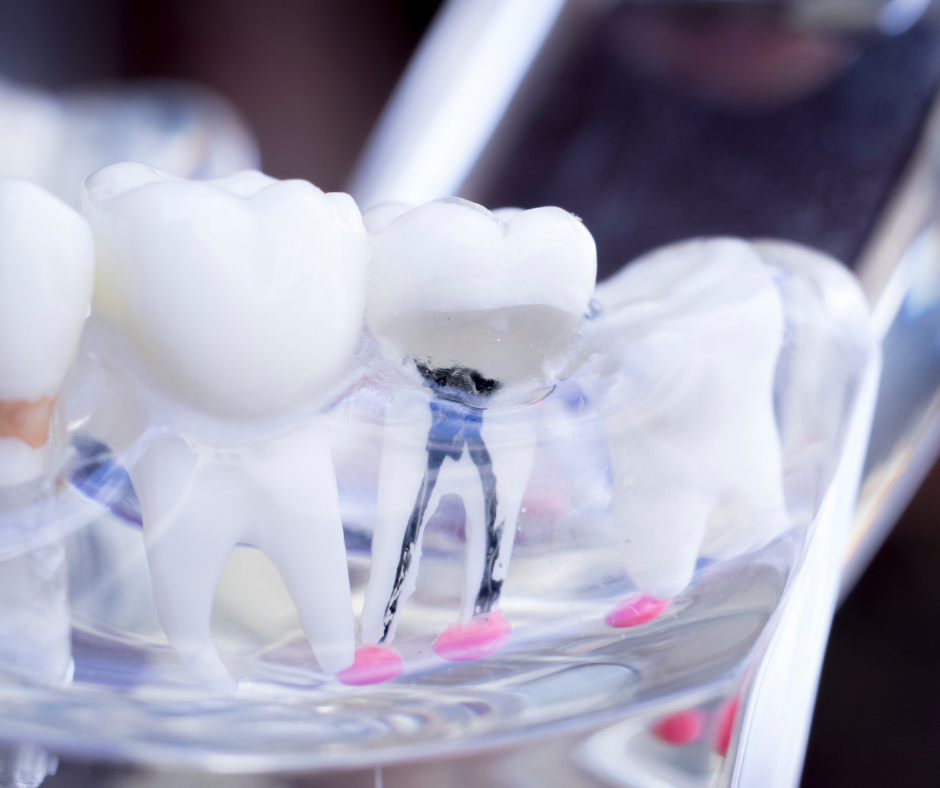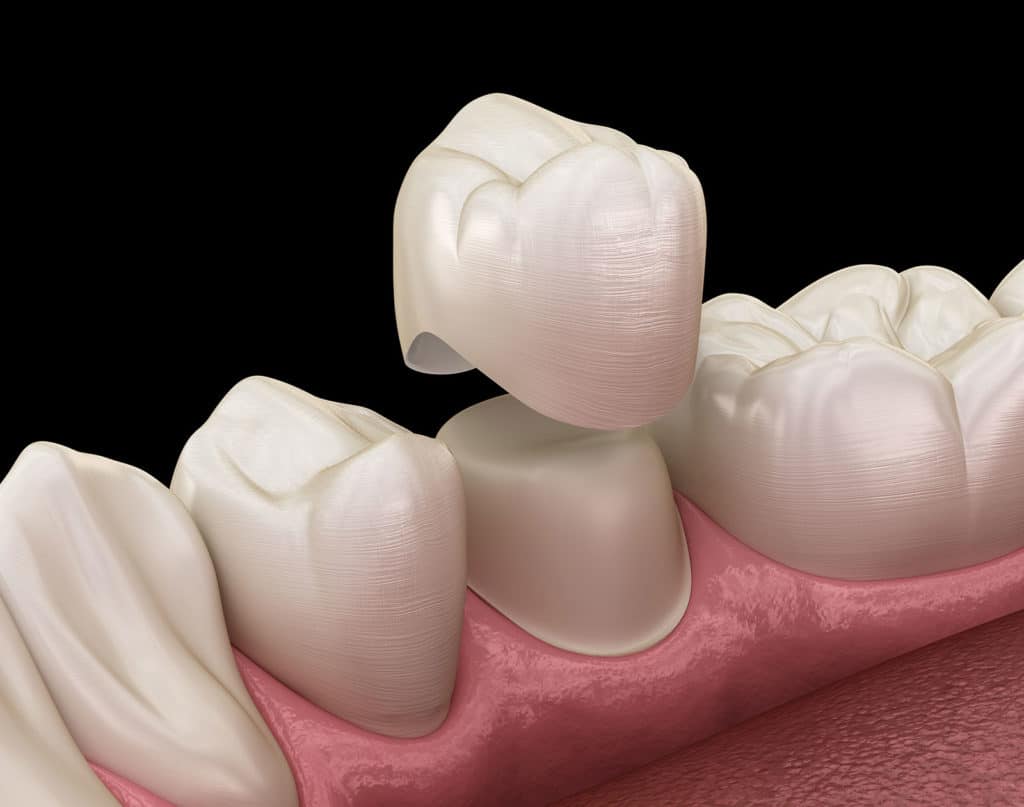Cavities are one of the most common health concerns, according to the Mayo Clinic, affecting people of all ages from infants to the elderly. Anyone with teeth can develop cavities, but those with poor oral hygiene habits tend to be afflicted with cavities more often than people who make a point of taking good care of their teeth.
What Is A Dental Cavity?
A cavity is an area of the tooth which has decayed to such an extent for a small hole or opening to form in the tooth enamel. This damage is permanent and will only worsen if not taken care of. Left untreated, a cavity will get bigger and affect deeper parts of the tooth which can lead to severe pain, infection, or even the loss of a tooth. There are different ways of treating cavities depending on the type of cavity you have, the location, and the severity. Common treatment options for dental cavities can include fillings, dental crowns, or a root canal.
Types Of Cavities?
There are three main types of dental cavities: smooth surface, pit and fissure decay, and root decay. Though all types have common properties, the type of cavity you have and the severity of it can affect your symptoms, treatment plan, and potential complications.
- Smooth Surface – Smooth surface cavities are the common cavities that form from eating or drinking. They can be found on the visible front or back of the tooth but can also be present, and as their name suggests, they affect the smooth surface of the tooth. These cavities are typically caused in part by the presence of plaque which hasn’t been properly removed with regular brushing and flossing or due to too much time without a professional dental cleaning.
- Pit And Fissure Decay – Pit and fissure cavities are usually found on the chewing surface of the tooth, most often on the back molars. The bumps and indents on the back molars make easy spots for plaque to build up and therefore, for cavities to form. Pit and fissure cavities are especially common in people who aren’t as mindful about brushing well at the back of the mouth, focusing more on the front teeth. For that reason, pit and fissure cavities are especially common in children whose oral hygiene habits have yet to be perfected. Pit and fissure cavities can be particularly painful as they are often located where a lot of chewing takes place so they are irritated more often.
- Root Decay – Keeping the root of the tooth healthy is essential for overall dental health. Because of this, root decay is arguably the most serious type of cavity. Root decay occurs on the surface of the tooth’s root, often coinciding with gum disorders such as receding gums. The roots of the tooth don’t have any enamel to protect them from harmful plaque or bacteria, making it that much easier for an exposed root to decay and form cavities. Hard or aggressive teeth brushing can be the cause of receding gums and contribute to developing root decay, so it is important to be mindful about brushing gently but thoroughly
What Causes Cavities?
Cavities are caused by a buildup of plaque on the surface of the teeth that starts the process of tooth decay. Plaque is acidic and sticky, making it easy to adhere to your teeth and begin to erode away at the tooth enamel. As the enamel weakens, decay quickens and progresses quickly. Brushing and flossing regularly and soon after eating or drinking along with regular professional dental checkups and cleanings are essential in preventing cavities. Certain people can be genetically more predisposed to cavities than others and some lifestyle factors can cause some people to get cavities more often than others, including:
- Consuming too many sugary and acidic foods/drinks, contributing to plaque formation
- Poor oral hygiene
- Lack of fluoride
- Dry mouth
- Frequent vomiting, this causes stomach acid and bile to erode the enamel and make it easier for cavities to form
- Acid reflux, resulting in stomach acid being present and eroding tooth enamel.
Signs Of Cavities
It is not always outwardly obvious that you have a cavity. A cavity in its early stages can have no signs, symptoms, or pain. The severity of the decay can affect how early cavities are detected as well as how close a person is paying attention to or watching out for cavities. Dental checkups and cleanings are important, in part, because the dentist or hygienist will be on the lookout for cavities and potentially identify and treat them early on. Some signs and symptoms of cavities can include:
- Increased tooth sensitivity
- Tooth pain – this pain can vary in intensity and even come and go. Never ignore a toothache!
- A visible hole in the tooth
- Staining on the teeth, this staining is usually black or white but any changes in a tooth’s colour should be assessed and addressed quickly.
Complications Of Cavities If Not Taken Care Of
A cavity that starts small can easily go undetected, especially if it is not causing any pain. Left untreated, a small cavity can lead to greater problems if not taken care of early on. Instead of a simple surface filling, untreated cavities can lead to two, three, or even four or more surface fillings, a root canal, a crown or even an extraction. A tooth with a cavity can also chip or break off entirely due to the tooth weakening. Tooth loss comes with challenges of its own such as tooth migration, speech problems, and difficulty chewing.
Untreated cavities can lead to abscesses and infections. If undetected or untreated, an infection caused by a cavity can spread to the gums, jaw bones, or even the bloodstream, causing sepsis.
Pain from a dental cavity can affect daily life, having negative effects on the mood and causing general fatigue. Tooth pain from a cavity can also lead to difficulties eating and chewing food. This can lead to weight loss, and in severe cases, malnutrition.
Take Care Of Your Teeth With The Dental Lounge
As the old saying goes, prevention is better than cure. Regular trips to the dentist or your hygienist for routine cleanings every six months can prevent cavities from forming, as there is less chance of plaque buildup and bacteria from which a cavity can form. If a cavity begun to form, regular dental cleanings can help identify them early on, possibly before you start to notice symptoms and allow for early treatment, and minimize the risk of further complications or decay.
At The Dental Lounge, we offer a wide range of dental services to help you maintain good oral hygiene. Whether you need a dental hygienist for regular checkups and routine cleanings or require complex cosmetic dentistry, we have a team of well-trained, empathetic staff who are ready to take care of you.
If you’re interested in making an appointment, are looking to learn more or have any questions or concerns, you are welcome to get in touch with us. You are welcome to give us a call at (954) 686 5729 or fill out our convenient online form. Contact The Dental Lounge today for service that will literally put a smile on your face.
Learn More About Dental Cavities






